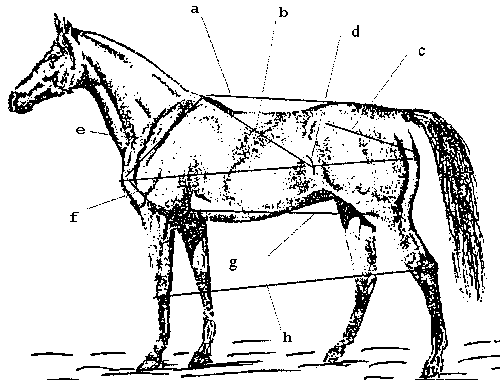The ATA Board of Trustees unanimously approved a policy dealing with Arabian genetic disorders in the Trakehner breed at the 2012 annual board meeting. In addition, the membership voted on November 3, 2012 to amend the ATA’s corporate regulations to prevent further introduction of known mutational disorders into the Trakehner breed.
The specific genetic disorders we are currently confronting are Cerebellar Abiotrophy (CA), Severe Combined Immunodeficiency Syndrome (SCID), and Lavender Foal Syndrome (LFS), all recessive genetic diseases endemic in the Arabian breed. New and 100% accurate DNA tests requiring only hair follicles are available for all three disorders. NOTE: If a hair sample is on file in the US with UC Davis (from previous genetic testing) it is not necessary to send an additional hair sample.
The Trakehner breed has used Arabian genetics for many decades. The great majority of highly successful Trakehner performance horses have Arabian influence in their pedigrees; and the possibility exists of these mutations being present in the carrier state in their descendants, although the incidence is expected to be low. But all three of these disorders have severe and heartbreaking results in foals that happen to inherit the same mutation from both parents.
The following policy gives everyone a chance to inexpensively test our breeding stock and eventually to virtually eliminate the mutations. Voluntary testing compliance is needed from our breeders to get the maximum benefit from the plan. The policy also requires all future stallions and some Arabian-descended mares to be tested before studbook entry.
ATA Policy on the Genetic Disorders of CA, SCID and LFS
Summary Discussion
The ATA has instituted these policies as part of its stated mission to preserve the breed. The probability that any individual Trakehner horse is a carrier of any these genetic disorders is expected to be quite low.
Confirmation by certified “clear” testing will provide comfort and confidence to all breeders that they will not pass these disorders into future generations. If we test all our breeding stock now, eventually the testing will not be needed, except for imported Trakehner horses and Arabian horses applying for breeding approval in the ATA.
Horses that prove to be carriers are themselves in no way affected by these diseases and will have normal lives and riding horse career potential. We simply believe that they should not be used for breeding, because of the risk of crossing to another carrier, which can result in an affected foal.
The process of testing is very easy. All genetic testing is at the owner’s expense. The current fee for members for the complete panel, which must be paid to the ATA is $216. Non-members who wish to have horses tested pay double the member rate.
January 15, 2013

a – the back (withers to peak of croup)
b – the body (point of shoulder to point of buttock)
c – the pelvis (point of hip to point of buttock)
d – the rib length (withers to last rib)
e – the shoulder (withers to point of shoulder)
f – the arm (point of shoulder to point of elbow)
g – the elbow to the stifle
h – the knee to the hock